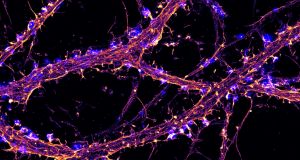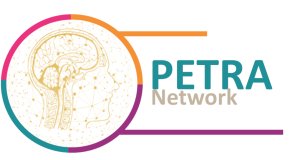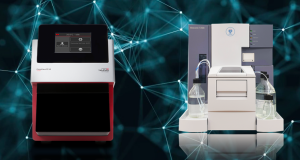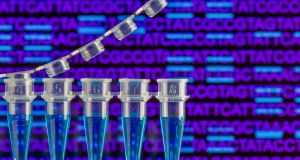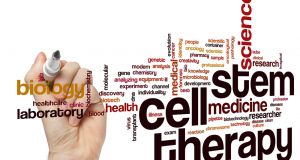Teams
NeuroTimone Facility (PFNT)
The PFNT Facility is a coherent set of exploration tools in neurobiology allowing research at the molecular, cellular and integrated levels.
News
-
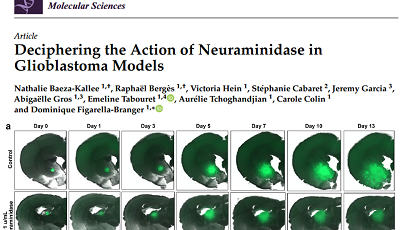 Just out! New publication from the GlioME Team (Team 8)
Just out! New publication from the GlioME Team (Team 8)The GlioME Team has new publication out in International Journal of Molecular Sciences as part of the Special Issue « Emerging Therapies for Glioblastoma ». This article deals with one of the team’s key issues, the gangliosides recognized by the A2B5 antibody and used as biomarker of cancer stem cells (CSC) in glioblastoma human brain tumours. To tackle these CSC known to be resistant to conventional treatment, the GlioME team aimed to better understand the effect of neuraminidase administration that removes A2B5, on an organotypic three-dimensional glioblastoma model.
-
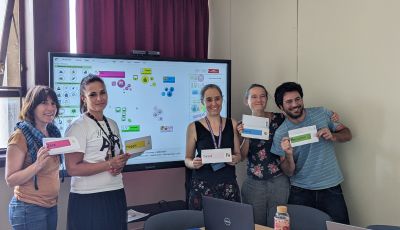 First Ma Terre en 180' workshop at the INP !
First Ma Terre en 180' workshop at the INP !On July 6, 5 INP members took part in the first Ma Terre en 180' workshop organized by Louise Greetham (Team 6/SCENT) and Santiago Rivera (Team 1). MT 180' is the 1st collaborative workshop from the academic world to build scenarios for reducing carbon footprint within a research laboratory. Congratulations to Fanny (aka Maggie), Laure (aka Zara), Theresa (aka Claire), Géraldine (aka David) and Ivan (aka Benjamin) for their participation and commitment. They succeeded in reducing the carbon footprint of their virtual Geophysics laboratory by over 50%.
-
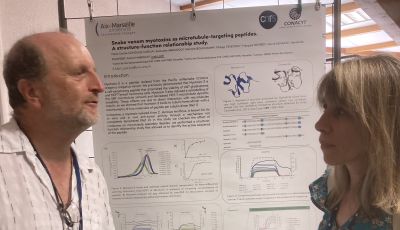 5th French Microtubule Network days
5th French Microtubule Network daysSince the first event in Marseille in 2013, initiated by François Devred and Stéphane Honoré, the French microtubule network has been organizing colloquia bringing together researchers, post-docs and students from more than 34 laboratories, every 2 years in a different city. After Grenoble (2015), Versailles (2017), and Rennes (2019), the fifth edition of the congress of french scientists working on microtubules took place on June 29 and 30, 2023 in Montpellier.
The occasion for José Luis to present the team's work on Snake venom myotoxins as microtubule-targeting peptides.
-
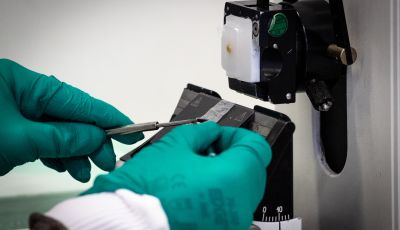 ICI summerschool: Workshop on tumoroids
ICI summerschool: Workshop on tumoroidsThe GlioME team was delighted to take part in the tumoroids workshop at the summerschool organized by the Institute of Cancer and Immunology. For one day, the team welcomed 8 international students to introduce them to the preparation of human glioblastoma tumoroids. A day rich in scientific and human exchanges.
-
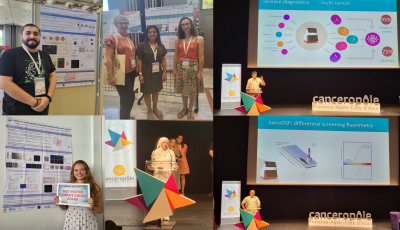 2023 Cancéropôle PACA Annual Seminar
2023 Cancéropôle PACA Annual SeminarTeams 8 and 9, along with the PINT and PETRA Network platforms, represented the lab at the Canceropôle Provence-Alpes-Côte d'Azur annual seminar. Another opportunity to highlight the work of our PhDstudents and researchers.
Rayane Hedna, Victoria Hein and Emmanuel Snacel-Fazy took up the challenge of the "teasing poster" session.
-
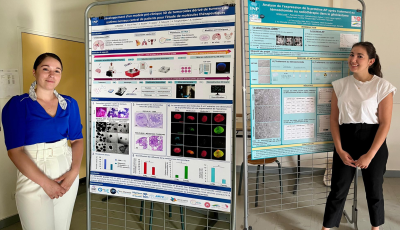 Posters presented by two BUT students
Posters presented by two BUT studentsThe GlioME team and the PETRA platform welcomed two BUT students, Ludivine Rouillon and Emilie Louat, for their end-of-year internship.
Their internship ended with a presentation of their work as posters entitled: "Développement d'un modèle pré-clinique 3D de tumoroïdes dérivé de tumeurs du SNC pour l'étude de molécules thérapeutiques" and "Analyse de l'expression de la protéine AP après traitement au témozolomide ou radiothérapie dans le glioblastome".
-
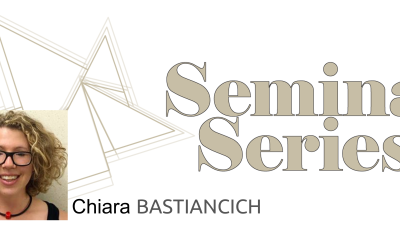 Canceropole Seminar Series with Chiara BASTIANCICH
Canceropole Seminar Series with Chiara BASTIANCICHJoin us on Tuesday 27 June 2023 from 1pm to 2pm for the 6th episode of the Canceropôle's "Seminar Series"!
Chiara will talk about her work on "A multidisciplinay journey of successes & pitfalls towards the development of tailored local treatments for glioblastoma"
==> ZOOM link
-
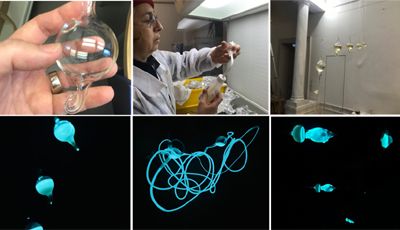 Nadia Merad Coliac en Résidence artistique de recherche
Nadia Merad Coliac en Résidence artistique de rechercheAssistée par Guillaume Thoraval, souffleur de l’université Paris cité, Nadia a elle-même créé des pièces en verre. Elle a été accueillie par le Fab-Lab de Paris Sorbonne, au labo de biologie pour la mise en culture et l’entretien des bactéries. L’œuvre présentée les 23 et 24 mai a reçu un franc succès et la qualité, ainsi que la démarche scientifique et artistique ont impressionnés les professionnels du milieu de l’art et les membres de l’institut de France, à laquelle est affiliée la fondation Laccolade.
Une exposition collective est prévue pour l’année prochaine.
Bravo Nadia!
Pages
INP in numbers
- 126 members
- 44 researchers
- 48 research assistants
- 12 post-docs
- 11 PhD















